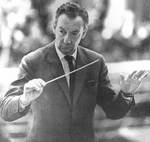Towards Advent
 Late November Saints
Late November Saints
The saints of these last days of the liturgical year incite us to look beyond the conditions of this present life and to set our hope on the things that God has prepared for us in “the holy city, new Jerusalem” (Ap 21:2), “what no eye has seen, nor ear heard, nor the heart of man conceived” (1 Cor 2:9).
Saint Cecilia of Rome
On the 22nd, Saint Cecilia is set before us: an icon of the Church, Virgin and Bride, “carrying the Gospel always on her heart and meditating therein day and night, talking with God in prayer” (Responsory).
Saint Columbanus
On the 24th, we monks remember Saint Columbanus, the Irish missionary monk who demonstrated that the search for God and zeal for the extension of His kingdom go hand in hand. Monastic implantations, be they ancient or new, are an indispensable part of the New Evangelization.
O God who, in Saint Columbanus,
didst wonderfully join the work of evangelization
to the practice of the monastic life,
grant, we beseech Thee,
that through his intercession and example,
we may seek Thee above all things
and work to increase the number of those who believe.
Holy Martyrs of Vietnam
Also on the 24th the Church commemorates the Holy Martyrs of Vietnam, that “great cloud of witnesses” (Heb 12:1) put to death “for their testimony to Jesus and for the Word of God” (Ap 20:4).
Saint Sylvester Gozzolino, Abbot
Today, November 26th, marks the feast of Saint Sylvester, a holy Benedictine abbot of the thirteenth century who, according to legend, was shocked into a conversion of life while gazing into an open tomb.
All-merciful God,
who, when the holy abbot Sylvester
stood before an open grave,
called him from the vanity of perishable things
to a life of shining holiness in the wilderness,
we humbly entreat Thee
that, like him, we may prefer nothing to the love of Christ
and live, already in this world,
with our hearts fixed on the joys of heaven.
Death Daily Before One’s Eyes
Saint Sylvester is well suited to these last days of November. Together with Saint Benedict, he calls us “to fear the Day of Judgment, to dread hell, to yearn for eternal life with all possible spiritual desire, and to keep death daily before one’s eyes” (RB 4:44-46).
 Dies Irae
Dies Irae
The feast of Saint Sylvester puts me in mind of the sequence of the Requiem Mass, the powerful and poignant Dies Irae. The place of the Dies irae in Western civilization is immense. For centuries, it has gripped the imaginations of poets, artists, and composers. As a small boy I knew only the plainchant setting of the Dies Irae, from having heard it sung so frequently in my parish church. I often hummed it to myself, fascinated by its dramatic First Mode intervals. In 8th grade, however, I sang as a treble in Britten’s stupendous War Requiem. The experience gave me quite another impression of the Dies Irae.
While in the traditional liturgy the Dies Irae continues to be sung in the Requiem Mass, the post-Conciliar reformed liturgy designates it for use in the Divine Office throughout the week immediately preceding the First Sunday of Advent. The Dies irae was originally composed for Advent, trumpeting the One who comes come to judge the world.
The Trump that Wakes the Dead
In Canto VI of his Lay of the Last Minstrel, Sir Walter Scott condenses the Dies irae into twelve lines. We do well to ponder them this week.
That day of wrath, that dreadful day,
When heaven and earth shall pass away,
What power shall be the sinner’s stay?
How shall he meet that dreadful day?
When, shriveling like a parchèd scroll,
The flaming heavens together roll;
When louder yet, and yet more dread,
Swells the high trump that wakes the dead:
Oh, on that day, that wrathful day,
When man to judgment wakes from clay,
Be thou the trembling sinner’s stay,
Though heaven and earth shall pass away.
Monks no longer have the custom of keeping an open tomb at the ready as the salutary destination of a daily stroll. We do well nonetheless to bend ourselves to the wisdom of Saint Benedict and the example of Saint Sylvester by “keeping death daily before our eyes.” And we do well to ruminate the poetry of the Dies irae.
The Right Perspective
If anything, these practices will place all other things in the right perspective, disposing us to detachment, showing us how narrow and petty are the things that hold us in their grip. In the end, heaven and earth will pass away, but the words of Christ our Lord and merciful Judge will remain.
